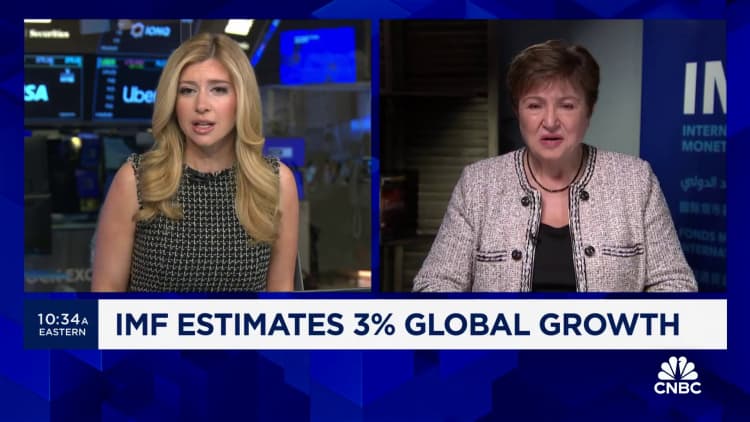
The Federal Reserve should be able to start cutting interest rates by the end of 2024, according to Kristalina Georgieva, managing director of the International Monetary Fund.
“We remain on our projection that we would see, by the end of the year, the Fed being in a position to take some action in a direction of bringing interest rates down,” Georgieva said on CNBC’s “Squawk on the Street.” “But again, don’t hurry until the data tells you you can do it.”
Georgieva’s comments come after recent inflation data — which reflected price growth well above the 2% target — has bolstered concerns that the central bank will not begin lowering rates as early as some had previously hoped. Fed funds futures pricing data suggests that the first rate cut could come in September, according to the CME FedWatch Tool.
Those fears have contributed to a recent pullback in the U.S. stock market, with the benchmark S&P 500 down nearly 2% since the start of April.
Thursday data showed wholesale prices rose 0.2% in March, slightly under the estimate of economists polled by Dow Jones. That came a day after a report indicated consumer prices climbed more than economists anticipated and marked an acceleration for inflation.
Georgieva said the Fed should continue following economic data, which will signal when it’s appropriate to begin reducing the cost of borrowing money.
People should be optimistic about the future of the United States as the country does not feel as much upward pressure on labor costs compared with other places, the former World Bank CEO said. And the U.S. government can play a relatively bigger role in keeping the economy from overheating, Georgieva said, which is another reason for optimism on the country’s financial health.
Still, Georgieva warned that keeping interest rates elevated for longer than expected can create risks to financial stability for the rest of the world. Meanwhile, she said central banks around the world will be less likely to follow the direction of the U.S. Fed as conditions diverge.
“Inflation is going down,” Georgieva said. “But, it is not yet where we want it to be.”
Credit: Source link














